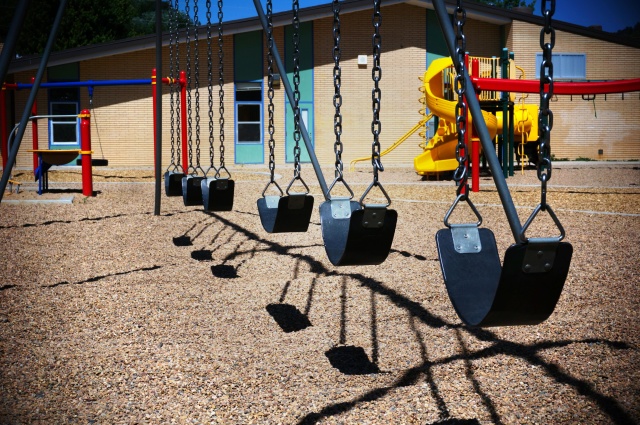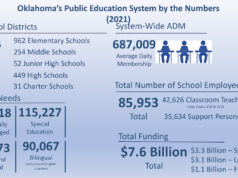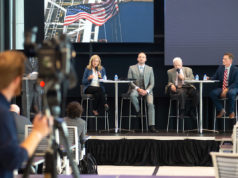
During the 2015 legislative session, state leaders were forced to make difficult funding decisions owing to a $611 million shortfall from the previous year. Many considered it to be somewhat of a victory that public education’s budget remained flat.
Now, with the state facing a shortfall that some are already predicting will be over $1 billion, education funding seems primed to remain in the red.
Public school districts statewide continue to pinch pennies in many areas to save money wherever possible. At the most recent State Board of Education meeting, for example, Superintendent of Public Instruction Joy Hofmeister and the board approved the sharing of superintendents for several school districts as a way for those districts to reduce costs. Clearly, public schools are searching for ways to lower expenses.
One matter of grave concern for our public schools, rural and urban, is Oklahoma’s growing teacher shortage. But without available funds to secure and retain quality teachers, how do we address the issue?
Perhaps we need to examine further the blended-learning model, which incorporates in-person and online learning. With a streamlined team, Ken Grover, the principal of Innovations Early College High School in Salt Lake City, has created an incredibly successful program using this method for his 320 students. He will be in Oklahoma City next month to meet with educational leaders from all over the state who are interested in learning about creative solutions that could address existing limitations while avoiding the need for additional funding or staff.
Innovation shouldn’t be seen as a last resort when times are tough, though. It is an all-important key to revolutionizing our educational system into one that is wholly effective and efficient and prepares students for careers that may not yet exist. Further, and perhaps more importantly, we want to provide the kind of educational system that teaches our students the skills they need to be informed, engaged citizens and productive, responsible individuals. To do this, we must support teachers in their challenge of providing enriching classroom instruction, and we must ensure they have the skills they need for classroom management, digital citizenship instruction, STEM curriculum and effective technology use.
This is where innovation comes in.
We see pockets of successful, cutting-edge practices throughout our state, but we must replicate them on a larger scale and in a manner that equitably addresses all student populations. Mary McLeod Bethune, educator and activist, once said, “We have a powerful potential in our youth, and we must have the courage to change old ideas and practices so that we may direct their power toward good ends.”
Of course, change is difficult and unpleasant at times, but for the sake of our students, we must be willing to change what isn’t efficient or effective.
Therefore, knowing that innovation is even more critical in times of constrained resources, the Oklahoma Public School Resource Center (OPSRC), a nonprofit established in 2014, is focused on providing transformative solutions — like the Catalyst Education Fund — for Oklahoma’s public schools.
At the heart of OPSRC is a team of five directors (technology, teaching and learning, finance, legal and communications) dedicated first and foremost to building relationships with district leaders and educators. Our team is actively collaborating year-round to help schools implement inventive yet economical programs and processes.
Understandably, though, successful change requires trust: trust in people and the process. It is paramount, then, that every professional development OPSRC offers, every program we introduce, must be verified for success and must be financially accessible and realistic for educators. Schools don’t necessarily need the “latest and greatest.” They need sustainability with proven results.
The impetus for OPSRC providing these services is one thing: quality education that all Oklahoma students deserve, regardless of where they attend school, where they live or what their background is. We provide these resources so educators can direct their focus back on instruction. Their students are our children — the future of our state and our country — and the time has come for us to band together to support them.
Nelson Mandela said, “Education is the most powerful weapon which you can use to change the world.” Educators need us, but, more importantly, students need us. So we all must act — collaboratively — to educate children and watch them change the world.





















